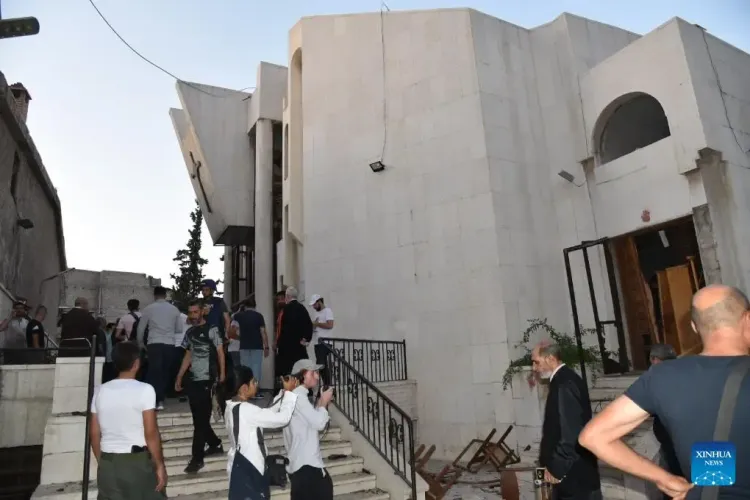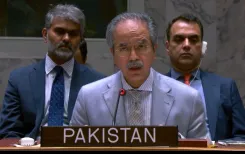What Happened During the Suicide Bombing at a Damascus Church?

Synopsis
Key Takeaways
- 19 people confirmed dead in the attack.
- Attacker linked to Islamic State.
- Incident raises concerns about sleeper cells in Damascus.
- Emergency services acted quickly to assist the injured.
- Authorities emphasize need for national unity and safety.
Damascus, June 23 (NationPress) A suicide bomber targeted a packed church in the Syrian capital, Damascus, during mass, unleashing gunfire on worshippers before detonating his explosives. This horrific act resulted in the deaths of at least 19 individuals and left dozens more injured, according to security sources and a monitoring group.
The Syrian health authorities have reported the latest official death toll at 13, with 53 others suffering injuries, as per Xinhua news agency.
The explosion occurred at the Mar Elias Church in the Dweilaa district, a mainly Christian area on the eastern outskirts of Damascus, creating a scene of devastation with blood-stained pews, broken icons, and chaos, as reported by eyewitnesses and local media.
The Syrian Observatory for Human Rights stated that the assailant opened fire inside the crowded church prior to setting off the bomb, leading to “severe human losses.” The group also warned that the casualty count could increase due to the serious conditions of many of the injured.
Officials from the interior security department confirmed that the attacker was linked to the Islamic State (IS). In a statement shared on X, interior chief Hamzah Al-Mustafa denounced the “cowardly terrorist act.” He stressed that such actions contradict the values of citizenship that unite Syrians and reiterated the government's commitment to national unity, equal citizenship, and the eradication of criminal factions threatening public safety.
Emergency responders quickly secured the area as ambulances transported the injured to hospitals in Damascus. Authorities urged the public to steer clear of the area to facilitate medical operations and mitigate the risk of further attacks.
This incident marks the first attack of its kind against a church in Damascus in several years, raising fresh concerns regarding the presence of sleeper cells in the capital.









